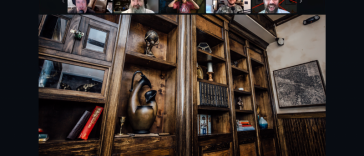This has given motivation for an expanding number of educational escape rooms, where understudies utilize their learning to solve issues and “getaway” a room at a specific time. In any case, just scarcely any getaway room contemplates have been published in the game-based learning research area, although it has been intrigued likewise in learning measures. In this investigation, we apply causation – effectuation hypothesis to notice the learning cycles of three understudy groups addressing errands in a getaway room context. People in virtual escape room have to learn a lot to play. The departure room was important for a data frameworks science research techniques course, where the learning cycle of 18 global understudies was observed on video chronicles. Diverse learning measures were seen in the groups and causation–effectuation hypothesis clarified for instance the experimental or guidance following group conduct.
Educators have progressively applied game-based learning

This is applied as instructive getaway rooms to build understudy inspiration and commitment, introduce experiential learning, and isolating enormous undertakings to more simple stages in a game. Business gets away from rooms were first presented in Japan not many years prior including a progression of riddles, enigmas, and errands frequently identified with a subject or story, which must be addressed at ina certain time before the members can “escape” the room. Some instructive departure room models incorporate Lpharmacology understudies addressing riddles to save Batman from being harmed by the Riddler and software engineering understudies for example examining the metadata of an IP address to discover GPS organizes. Causation – Effectuation hypothesis has been applied in entrepreneurship and association exploration to depict how new business thoughts are shaped into organizations just as how innovative associations learn, plan and work. Effectuation and causation are found in the hypothesis as two closures of a continuum, effectuation addressing a non-direct, versatile, experiential, and relevantly and situationally adaptable method of working, whereas causation is viewed as a formalized, efficient, linear, and constant method of working. In the learning context, experiential learning cycle and framework (where one task is expanding upon the generally cultivated tasks)seem firmly identified with effectuation whereas causation looks like issue-based learning. Earlier departure room writing in advanced education has emphasized the useful commitment, for instance by depicting how getaway rooms are created and executed, yet additionally, hypothetical contribution focusing on the results, for example, how understudies learned or then again how their inspiration created Escape rooms generally include a few undertakings and can therefore be considered as cycles, which has been of premium in game-based learning literature.
There has been a call for considers zeroing in on how learning occurs in a certain game plan
Therefore we currently apply the hypothesis of causation and effectuation to this field to clarify how groups act and pick up while solving the issues and doing the undertakings in the game. A departure room was utilized as a test to increment understudy inspiration and to show their capacity to utilize the new abilities on a Master level course in data frameworks science on exploration techniques. Understudies contended in groups by tackling errands identified with research methods, for example, finding an appropriate hypothesis, system, and information gathering strategies for the given research question (RQ), and choosing information sources, which they would require for settling the RQ platform. The point of this paper is three-overlay. To start with, we present a connection between current writing on causation and effectuation and experiential and issue-based learning speculations that are valuable for understanding the learning measures in instructive break rooms. Second, we clarify how causation and effectuation were noticed and applied on an exploration strategy course. Third, we give proposals on how causation and effectuation viewpoint can help to understand understudy conduct in a getaway room setting.

